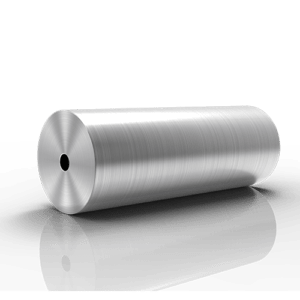Welcome to My Blog!
Before we dive into the content, I’d love for you to join me on my social media platforms where I share more insights, engage with the community, and post updates. Here’s how you can connect with me:
Facebook:https://www.facebook.com/profile.php?id=100090063158454
Now, let’s get started on our journey together. I hope you find the content here insightful, engaging, and valuable.
Table of Contents
Introduction

Material selection in construction plays a pivotal role in the success and durability of projects. Two widely used materials, alloy and stainless steel, often spark debate among professionals. Each material offers distinct benefits, making them suitable for specific applications. This article explores the key advantages of alloy vs stainless steel, helping you make informed decisions for your construction needs.
Strength and Durability in Alloy vs Stainless Steel
One of the most significant advantages of alloy steel lies in its customizable strength. Alloys are engineered by combining various metals and elements to achieve specific properties, making them exceptionally strong and durable. This makes alloy steel a preferred choice for projects requiring high resilience and load-bearing capacity.
Stainless steel, while robust, has its limitations in extreme stress conditions. Its durability is rooted in its chromium content, which adds toughness but may fall short compared to certain high-strength alloys.
Common Applications Requiring Strength
- Structural frameworks for tall buildings
- Heavy-duty bridges
- Industrial machinery components
Corrosion Resistance: A Crucial Factor

Stainless steel is celebrated for its excellent corrosion resistance, making it ideal for environments exposed to moisture, chemicals, or extreme weather conditions. Its chromium layer forms a natural shield that prevents rust and degradation over time.
Alloy steel, on the other hand, often requires additional treatments or coatings to achieve comparable corrosion resistance. However, modern advancements have introduced corrosion-resistant alloys that rival stainless steel in challenging environments.
Corrosion-Resistant Applications
- Marine construction
- Food processing plants
- Chemical storage tanks
Versatility in Design and Application
The versatility of alloy steel gives it a distinct edge in construction. Its composition can be tailored to meet specific project requirements, enabling innovative designs and applications. This adaptability is particularly useful in industries like aerospace, automotive, and advanced architectural projects.
While stainless steel offers flexibility, it is typically confined to standardized grades, which limits customization for unique construction challenges.
Examples of Versatile Applications
- Customized building components
- Lightweight structural materials
- Specialized tools and machinery
Comparing Alloy vs Stainless Steel in Heat Resistance

In heat-intensive environments, the performance of alloy vs stainless steel varies significantly. Certain alloys are specifically designed to withstand extreme temperatures without deforming or losing strength. These heat-resistant alloys are commonly used in industries such as energy, manufacturing, and transportation.
Stainless steel also performs well under heat but is generally surpassed by alloys specifically engineered for high-temperature applications.
Heat-Resistant Uses
- Furnace linings
- Power plant components
- Aircraft engine parts
Longevity and Maintenance Considerations
Longevity is a critical factor when selecting construction materials. Stainless steel’s natural corrosion resistance often results in lower maintenance requirements, making it an excellent choice for projects exposed to harsh environments.
Alloy steel, depending on its composition and protective treatments, can also achieve remarkable longevity but may require periodic maintenance to prevent wear and corrosion.
| Property | Alloy Steel | Stainless Steel |
|---|---|---|
| Corrosion Resistance | Requires coatings or treatments | Excellent due to chromium layer |
| Strength | Highly customizable for projects | Strong but less flexible |
| Heat Resistance | High with specific alloys | Good but varies by grade |
| Maintenance Needs | Moderate with periodic upkeep | Low due to natural resistance |
Cost Efficiency in Material Selection
While both materials offer unique benefits, the choice often hinges on cost considerations. Alloy steel is typically more economical, especially for projects that do not require high corrosion resistance. Its customizable nature also allows manufacturers to produce cost-effective solutions tailored to specific needs.
Stainless steel, although more expensive, offers long-term savings in maintenance and longevity, particularly in environments prone to rust and corrosion.
Conclusion

Deciding between alloy vs stainless steel depends on project-specific requirements such as environmental conditions, structural demands, and budget constraints. Alloy steel excels in strength, versatility, and cost efficiency, while stainless steel stands out for its corrosion resistance and low maintenance. Understanding these key advantages ensures optimal material selection, leading to successful construction outcomes.
FAQ
What are the main differences between alloy and stainless steel?
Alloy steel is a blend of metals designed for specific properties like strength and heat resistance, while stainless steel is known for its natural corrosion resistance due to its chromium content.
Which material is better for outdoor structures?
Stainless steel is generally better for outdoor structures due to its corrosion resistance, but corrosion-resistant alloys can also perform well with proper treatments.
Is alloy steel suitable for high-temperature applications?
Yes, certain alloys are specifically engineered to perform exceptionally in high-temperature environments, often surpassing stainless steel in heat resistance.
How do I choose between alloy and stainless steel for my project?
Consider factors like environmental exposure, required strength, and budget. Consulting a material specialist can help identify the best option for your specific needs.
Can both materials be used together in a single project?
Yes, combining alloy and stainless steel in a project can optimize performance and cost efficiency by leveraging the strengths of each material.
